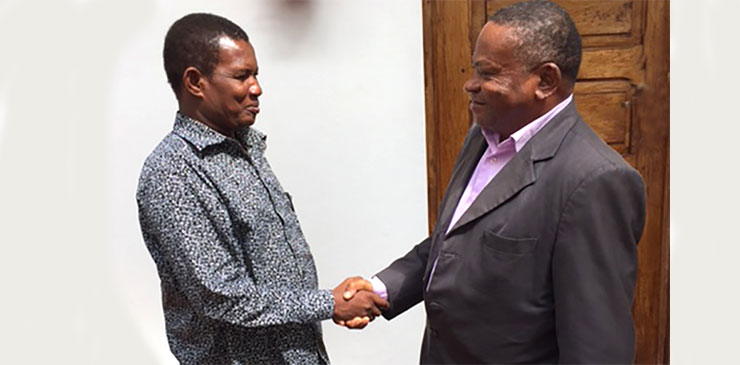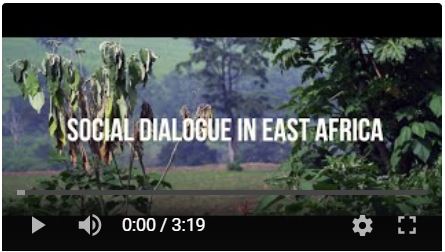By Søren Bjerregaard Jepsen, Danish Trade Union Development Agency (DTDA)
The trade unions and employers’ associations in East Africa have improved their ability to work together at the negotiating table. At a meeting in a hotel in Arusha (Tanzania), the leaders of employers’ associations and of the trade unions’ national confederations of all of the six countries of East Africa (NOTU- Uganda, CESTRAR-Rwanda, COSYBU-Burundi, COTU-Kenya, TUCTA-Tanzania and ZATUC-Zanzibar) are shaking hands, laughing, and eating together. Such a picture of employers and trade unions working together to find joint solutions is common in many countries, but in East Africa, this amicable atmosphere is something new.
This change is the result of a project that DTDA is funding, along with the Confederation of Danish Industry, and with the support from the Danish Ministry of Foreign Affairs.
Initiated in 2013, the project focuses in promoting social dialogue and negotiation between employers’ associations and trade unions in East Africa. The meeting in Arusha is part of the evaluation of this cooperation. The participants are meeting to share and exchange their experiences on the project.
“The biggest achievement is that the employers and workers in East Africa are now talking to each other. It is obvious to find common solutions, which are not necessarily dictated by the government or court. We are in the middle of it, and it is a job that will continue even though the project finishes by the end of the year”, says Salahi Salim Salahi, president of the employers’ association on Zanzibar, ZANEMA.
Solving the conflict at the workplace
On the island of Zanzibar, the project has eased the path for solving conflicts in workplaces.
“Now, we have conflict resolution committees at workplace level. Here, the representatives from the workplaces and representatives from the workers solve large and small conflicts, which would otherwise risk escalating. It is good for both parties”, says Mohammed Khamis, general secretary of Zanzibar’s trade union confederation, ZATUC.
Dialogue and negotiation in Rwanda were at square one before the project, according to Africain Biraboneye, from the main union confederation CESTRAR. “But now negotiations at company level take place, and we have had our first collective agreement in the sugar- and tea sector”, he explains.
Leon Pierre Rusanganwa, from the Private Sector Federation (PSF) in Rwanda, is also happy with this way of working: “Together with the trade union, we can secure proper collective agreements, improve safety conditions and increase the well-being in workplaces. We have seen it in the tea sector, and I can testify from a sugar factory: It increases effectivity as well”.
Geoffrey Kabi from the Ugandan employers’ association, expresses the overall feeling in just five words: “We are in this together”.
Watch the video of this project
For more information
- Visit the East African Trade Union Confederation to learn more about the regional work of unions in East Africa:
- This project and video contributes to the ITUC global campaign on SDG 8: #Timefor8 - the clock is ticking for a New Social Contract
Picture: ZATUC’s Mohammed Khamis shakes hands with ZANEMA’s Salahi Salim Salahi



